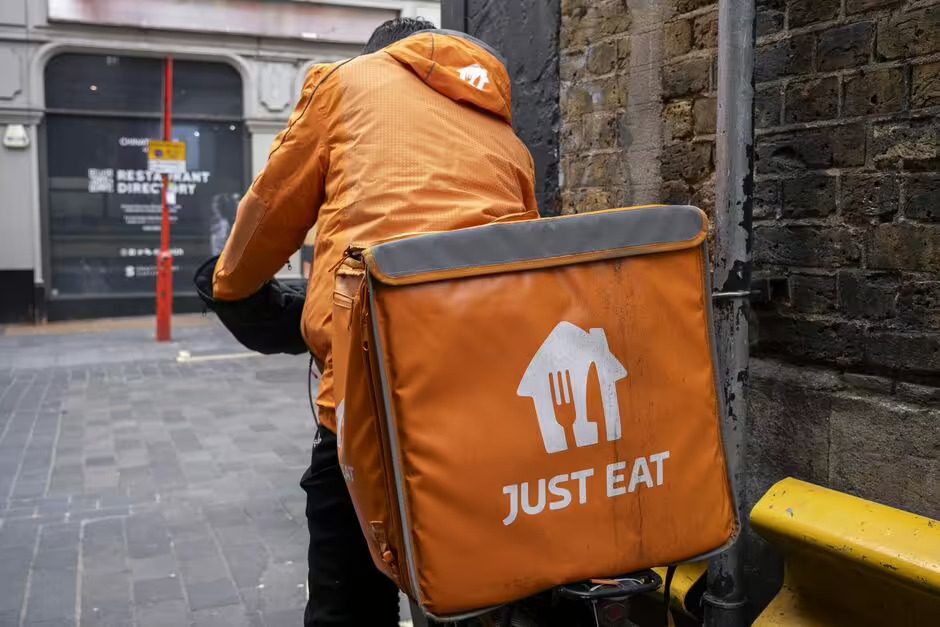Several asylum seekers who recently arrived in the UK were arrested in London after being found working illegally as fast-food delivery riders. According to reports, these individuals had access to food delivery accounts on apps like Just Eat, Deliveroo, and Uber Eats within minutes of entering the country. The arrests were part of a major immigration enforcement operation targeting asylum hotels, where authorities suspect illegal work is widespread.
The operation began outside the Thistle City Barbican Hotel, where immigration officers waited for the riders to return from their delivery shifts. Some were from countries such as Iran, Pakistan, and Afghanistan. Officers seized mobile phones and bicycles during the arrests. One asylum seeker denied working for a food company until his phone rang and the officer pointed out it was a call from Deliveroo, revealing the truth. Later that day, more arrests followed, including one man being led into an unmarked van. By nightfall, enforcement teams were still at the hotel investigating.
According to The Sun, asylum seekers are using social media to quickly gain access to delivery accounts—sometimes within just 10 minutes of asking. These accounts may belong to others or be fraudulently created, raising major concerns over identity checks and security.
Are asylum seekers allowed to work in the UK?
Normally, asylum seekers in the UK are not allowed to work while their applications are still being processed. The recent cases show a growing issue with illegal working, where people awaiting asylum decisions take on jobs through gig economy platforms. This not only breaks immigration rules but also raises questions about safety, vetting, and wages for legal workers.
The UK government has now summoned top executives from Deliveroo, Just Eat, and Uber Eats for emergency talks. Home Secretary Yvette Cooper announced that the companies have agreed to introduce daily facial recognition checks to verify their drivers’ identities. The government also plans to step up enforcement by seizing electric bikes kept outside asylum hotels and launching more raids where illegal working is suspected.
Shadow Home Secretary Chris Philp, who made a surprise visit to an asylum hotel last week, claimed he saw “clear evidence” of illegal work by migrants. He criticised the food delivery firms, saying they had allowed fraud to thrive on their platforms and urged police to carry out daily operations until the issue is under control. He also warned that this practice could attract more illegal immigrants to the UK and pose safety risks to the public.
Deliveroo responded by stating that they have a “zero tolerance” policy for misuse and are constantly updating their systems to block abuse. Uber Eats said they will continue investing in fraud detection tools, and Just Eat confirmed their commitment to tighten safeguards in light of the growing problem.
Border Security Minister Dame Angela Eagle stressed that the government will not ignore illegal working, as it damages honest businesses and supports people smuggling operations. Employment Rights Minister Justin Madders added that illegal work leads to exploitation and pushes down wages for legal workers. He welcomed the food delivery firms’ promise to take action but said the government will monitor their efforts closely in the coming months.
As immigration enforcement intensifies, the spotlight is now firmly on how gig economy platforms manage identity checks and whether the current system is strong enough to prevent abuse by individuals who are not legally allowed to work in the UK.

